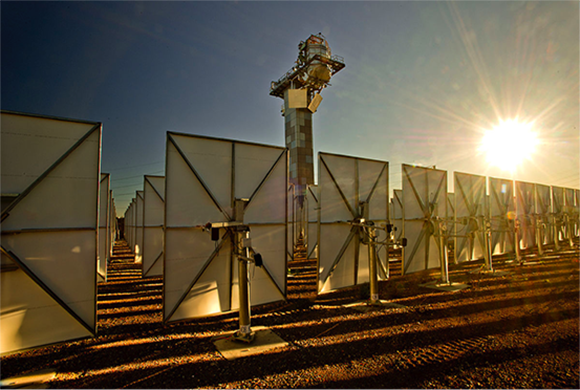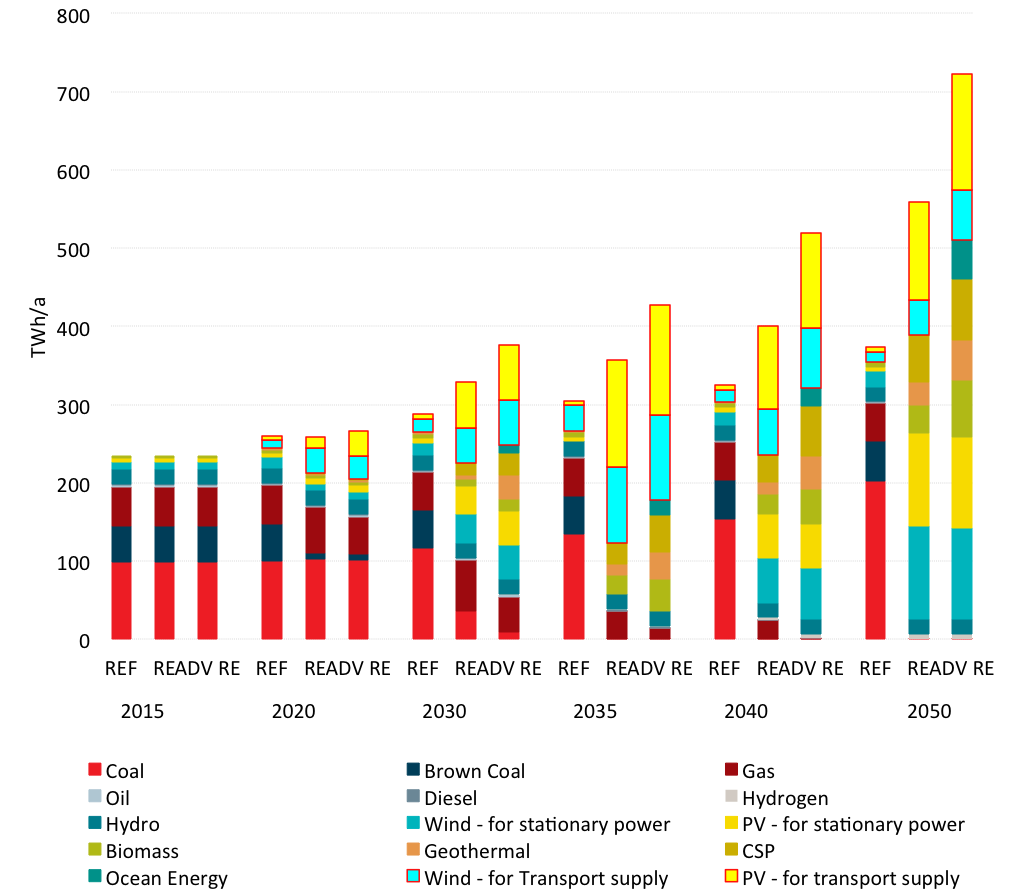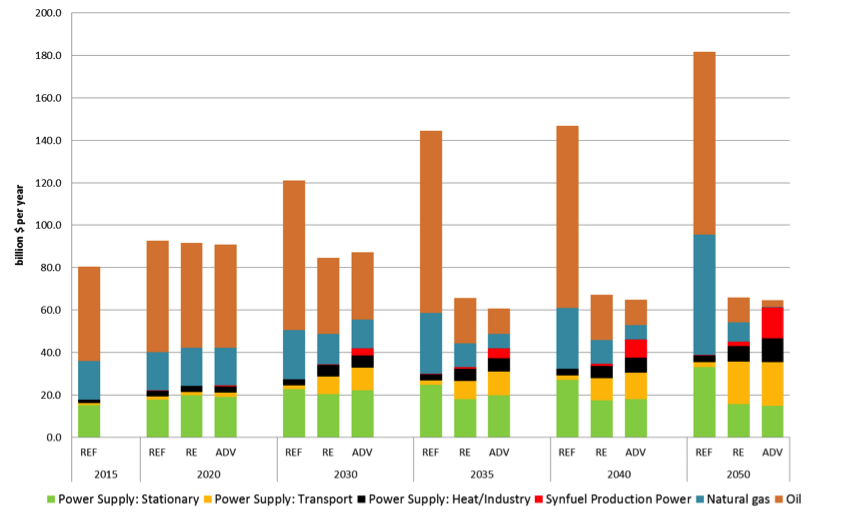Decarbonising Australia's energy sector within one generation
Australia could provide all electricity, heating and fuel needs with renewable energy by 2050, according to Australian-first research conducted by the Institute for Sustainable Futures (ISF) at the University of Technology Sydney.

Solar array, CSIRO Energy Centre, Newcastle NSW (CC 3.0)
Australia could phase out all coal-burning power by 2030, and have 40% of our transport energy needs met by renewable energy by 2035, said Dr Sven Teske, lead author of the modelling report and Research Principal at ISF.
"Our modelling shows that by mid century all of Australia’s energy can be completely decarbonised, including all transport, industry and heating," said Dr Teske.
Dr Teske said investing more in renewables means spending a lot less on fuels. "The modelling demonstrates an average of $20 billion in fuel cost savings every year between now and 2050. Australia would save, on average, $9 billion a year on power sector fuel costs and $11 billion a year on transport fuel costs between now and 2050."
The modelling was commissioned by GetUp! and Solar Citizens as part of the Homegrown Power Plan, which spells out how Australia can repower the country with renewable energy, reboot our failing electricity system, and remove the roadblocks holding back the renewables boom.
The model used by ISF was created by the German Aerospace Agency, and has previously been used to inform the German government's 'Energiewende' and climate mitigation scenarios for the IPCC.
ISF developed three scenarios for the possible pathways for Australia’s future energy supply system:
- Reference scenario reflecting a continuation of current trends and policies
- 65% Australian scenario focused on renewable energy in the stationary power sector, while the transport and industry sector remains dependent on fossil fuels
- 100% Australian scenario for a fully decarbonised power sector by 2030 and a fully renewable energy supply system – including transport and industry – by 2050
Key results for 100% Australian scenario
Power Sector
- The supply of electricity is 100% renewable by 2030 for stationary power.
- By 2035 97% of total electricity demand (including electrified transport) is supplied by renewables.
- Energy productivity doubles by 2030.
- All coal power plants shut down by 2030.
- Firm capacity remains at today’s level of approximately 75% throughout the entire scenario period.
Transport Sector
- The supply of energy is 41% renewable by 2035, 64% by 2040 and 100% by 2050.
-
Australia is independent from oil imports within one generation.
Industry Sector
- The supply of energy is 50% renewable by 2035 and 100% by 2050.
- Electricity use doubles by 2050 to replace direct fuel consumption.
Primary Energy
-
41% of energy use across all sectors is renewable by 2030, 59% by 2035, 75% by 2040 and 96% by 2050.

Breakdown of electricity generation by technology

Annual electricity and fuel costs by sector and scenario
Media enquiries
Xavier Mayes, 0423 030 658
About the research
This research was commissioned by GetUp! and Solar Citizens for the Home Grown Power Plan. The Institute for Sustainable Futures (ISF) is a research institute based at the University of Technology Sydney.
Teske, S., Dominish, E., Ison, N. and Maras, K. (2016) 100% Renewable Energy for Australia – Decarbonising Australia’s Energy Sector within one Generation. Report prepared by ISF for GetUp! and Solar Citizens, March 2016.

